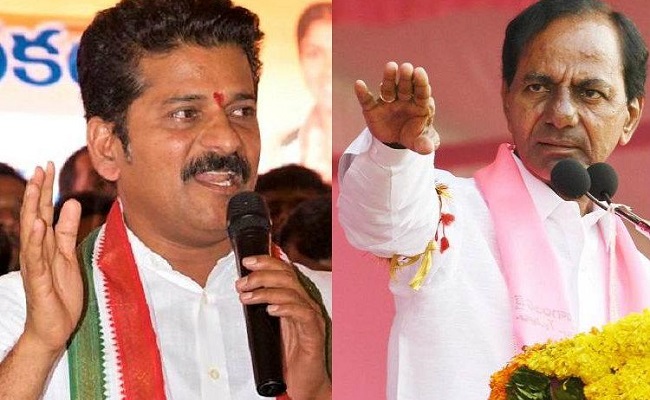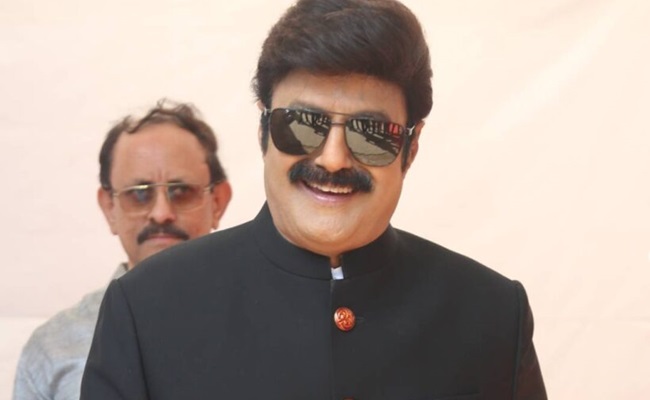
With just five days left for polling, Telangana is set for a cliffhanger as the ruling Bharat Rashtra Samithi (BRS) and the opposition Congress are locked in a neck and neck race for power.
A resurgent Congress is taking on the BRS, which is confident that its supremo K. Chandrasekhar Rao will make history by becoming the first leader from south India to score a hat-trick as the chief minister.
Failing to capture power twice despite carving out Telangana state, the Congress is hoping to form its first government in India’s youngest state.
The BRS has lost steam, the Congress has significantly improved while the BJP is nowhere in the picture, was how political analyst Professor K. Nageshwar summed up the scenario before polling.
However, he believes a change of guard is possible only if there is a massive wave in favour of the Congress given the huge gap between the two major contenders for power.
“The biggest enigma in elections is that BRS has more than 100 legislators. Even if it loses 40 seats, it will still retain power. Similarly, Congress has a low base. Even a 200 per cent improvement in Congress will not deliver victory for the party. This is a major challenge. The gap between Congress and BRS is such that unless there is a massive political wave either against BRS or in favour of Congress the change of guard may not be possible,” Nageshwar told IANS.
In 2018, the BRS had retained power with a massive majority winning 88 seats in the 119-member Assembly. The Congress, which fought the election in alliance with the Telugu Desam Party (TDP), got only 19 seats.
A few months after the 2018 elections, KCR further consolidated his position by luring a dozen MLAs to the BRS. Four more MLAs including both the legislators of the TDP also joined the BRS, taking its tally to 104.
According to Nageshwar, there is the anti-incumbency factor among the youth, government employees, in certain sections, in certain areas and there is significant anti-incumbency at the constituency level. If this turns into general anti-incumbency it will be a serious problem for the BRS.
Nageshwar, also a former MLC, is sure that the BRS will not get the seats which it got in 2018. “BRS strength has declined in the last couple of months. They will not get the seats they got in 2018. They will definitely lose seats. How much they lose? To the extent they lose power, I don’t know. The Congress party has significantly improved. How far it has improved? To the extent that it will cross the magic figure is again a million dollar question.”
After crushing defeats in by-elections over the last couple of years, the Congress was looking demoralized till a few months ago. However, the victory in Karnataka gave it the much needed boost. Since then, the Congress has significantly improved and the BJP has substantially declined.
Before the Karnataka elections, the BJP was projecting itself as the only viable alternative to the BRS.
“The hype which was created for the BJP is no longer there. Before the Karnataka election, there were by-elections for Dubbak, Huzurabad and earlier for Huzunagar and Nagarjuna Sagar seats and the elections for Greater Hyderabad Municipal Corporation. In all these elections the Congress failed miserably and as a result the BJP could successfully spin a narrative that the Congress is decimated in Telangana, which is not true but it could successfully spin the narrative due to the serious electoral reverses suffered by the Congress,” said Nageshwar.
As the anti-incumbency catapulted the BJP in the by-elections, both the BRS and the BJP could successfully spin a narrative that the Congress is decimated but the Karnataka elections have punctured that narrative. The narrative was that the Congress is nowhere, neither in Telangana or anywhere in the country. That has been exposed, he said.
According to him, the other narrative that the Modi juggernaut is invincible was also punctured. “When the pro-BJP and anti-Congress narratives got punctured, obviously the anti-incumbency vote that the BJP was getting shifted to the Congress which had its own roots. The anti-incumbency significantly rallied behind the Congress. The party was the major beneficiary. There is anti-incumbency and there is voter fatigue with BRS and both have benefited the Congress because the BJP’s narrative got punctured.”
“Meanwhile, self-goals of the BJP also helped the Congress to improve. The inexplicable removal of Bandi Sanjay when he was heading the party in a very positive trajectory, the party high command for its own reasons chose to drop him. They stalled the Praja Sangram Yatra which got a lot of traction and was even appreciated by Narendra Modi and the hype that was created around Kavitha’s arrest also fell flat. Bandi Sanjay’s removal and Kavitha’s arrest, these two episodes have raised serious doubts about the BJP’s intentions to fight BRS, forget about its capability. People have been increasingly convinced that the BJP is in no mood to fight the BRS because the BJP wants to defeat the Congress rather than the BRS,” he added.
With the contest going down to the wire, political analysts believe that poll management holds the key.
Another X factor which will determine the outcome will be the extent to which the BJP will garner the votes to the benefit of the BRS.
“As the contest is extremely close and no one is in a position to hazard a guess, the poll management will decide the winner,” says another political analyst Palwai Raghavendra Reddy.
He believes that the party which does well in poll management, takes voters to the booths and executes its plans effectively will emerge the winner.
“The Congress always lags behind in poll management given the fact that it is not in power and the BRS is in power and the BJP will tacitly support the BRS,” explained Nageshwar.
He mentioned that the BRS has a strong organisation with elected representatives down to the ward level which matters in the election.
“The second X factor is the BJP. We have to see in how many segments the BJP will get considerable votes. Wherever the BJP gets considerable votes it will automatically favour the BRS. We have to see how these factors play out,” he added.













